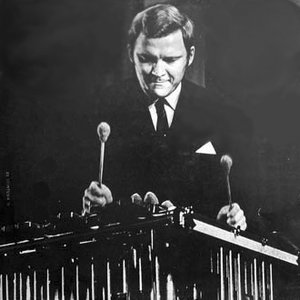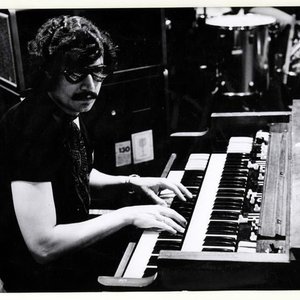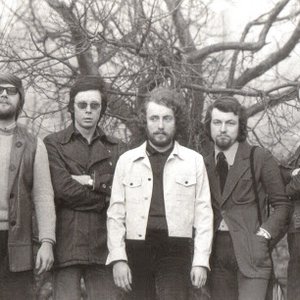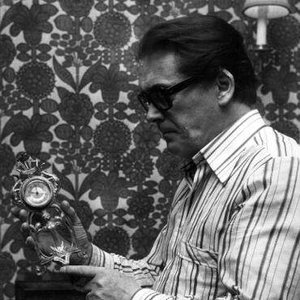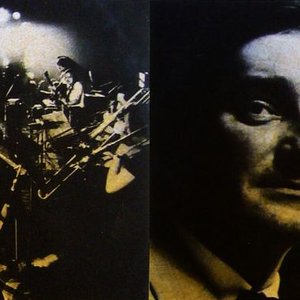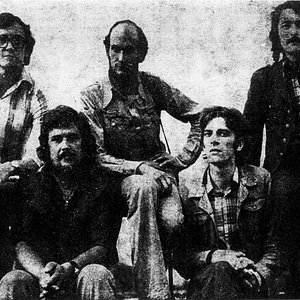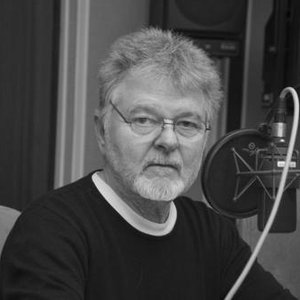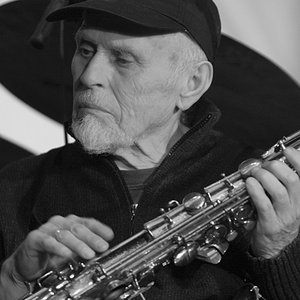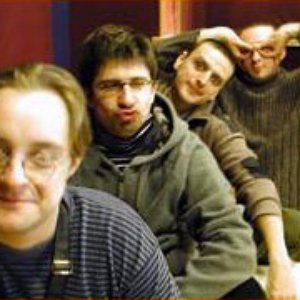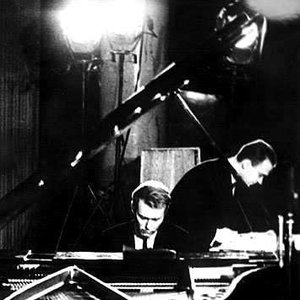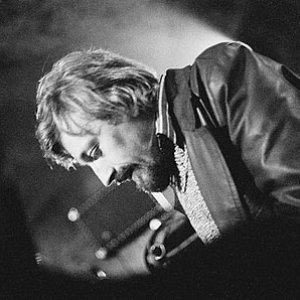Biography
-
Years Active
1964 – 1985 (21 years)
-
Founded In
Warsaw, Mazowieckie, Poland
-
Members
- Janusz Mych (1964 – 1985)
- Waldemar Parzyński
"There is this epidemic of labeling, everybody labels everybody - seems some people can't sleep at night without having everything neatly classified. I don't give a damn if somebody says I sing church music, and somebody says it's military marches and somebody says it's nursery rhymes, and somebody else wonders if it's jazz. (…) I don't care what it's going to get called, I just want it to be good." (Bernard Kawka of the Novi Singers in: Jazz Forum 1/1971)
We first stumbled across the Polish vocal ensemble Novi Singers (New Original Vocal Instruments) several years ago by chance and have been hooked ever since. Their second album "Novis in Wonderland" (1968) might be known to many, for it was released on the German SABA-MPS label. The vast artistic output of the group for the state-owned Polish record label Polskie Nagrania remained a well-kept secret for the Western-European countries and the rest of the world. The emergence of the CD in Poland had a detrimental effect upon the Polish Jazz scene by confining many of these excellent jazz-recordings to the vaults.
With their absolute technical perfection and their musical approach, the vocal jazz ensemble Novi Singers were at the time often compared to Lambert-Ross-Hendricks or Les Double Six. The story of the Novi Singers begins in 1964 when Bernard Kawka, a student at the Warsaw Music Conservatory, decides to found his own jazz group with other students, choosing the voice as an ideal instrument. The original members of the group are Ewa Wanat (violin), Janusz Mych (flute), Waldemar Parzynski (percussion), Aleksander Gluch and Bernard Kawka (violin), all of whom both sang and played their respective instruments.
"Above all we found the human voice to be a perfect jazz instrument" recalls Ewa "and that the possibilities in sound, expression and interpretation were unlimited. We knew that there was still much to be done in the field we had chosen and so we decided to become real improvisers: to create music while singing. We resigned from lyrics, and began to scat. Texts are self-determining and make improvisation difficult, while we want our music to be spontaneous, fresh and full of improvising expression and rhythmic dynamism that belongs to afro-rooted music". (Jazz Forum 1/1971)
On this compilation you will find a remarkable selection of tracks from several different albums that span the creative output of the Novi Singers from the 60's to the 70's (1965-1975). You will hear how their vocal artistry has been influenced by many different musical movements from Modern Jazz to Bossa Nova.
We start our little musical journey with two tracks Torpedo (B. Kawka) and All Together (B. Kawka), both taken from one of the most innovative albums of the group, Torpedo (1969). The name Torpedo shouldn't frighten you off. As they put it themselves: "Torpedo - the mysterious device specially designed to obliterate musical orthodoxy, heartless craftmanship, the smug self-confidence of those who clutch well-worn ideas and tread well-worn trails". That's a clear statement.
Next up is Christine (B. Kawka) from the first Novi Singers release on a single, dating from 1965. At the time where they called themselves NOVI Kwintett Vocalny, as they were a quintet at the time. Aleksander Gluch left the orginal group in 1966.
Yet another track, Misfit comes from the "Torpedo" album with its inspiring deep flute solos by Janusz Mych and mystic horns.
Our favourite track on this record My Own Revolution (B. Kawka, 1970) with its strong psychedelic beat-touch was typical for Poland at that time. Beat music had a very big following in Poland, simular to that of former Eastern Germany. This song could have been a great pop-hit in the western world due to its enticing hook-line and Beatles flair.
The follow-up track Next, Please (B. Kawka) from the "Bossa Nova" (1967) album shows that the jazz scene in Poland was also infected by the Bossa Nova craze of the time. By the way, it was in 1960 that Stan Getz, who was heavily engaged in the Bossa Nova movement, visited Poland for the first time and gained widespread recognition, leaving his own musical influence in Poland by giving several outstanding concerts. He was actually the first American jazz musician to record with Polish jazz musicians.
The very gifted songwriter and arranger Bernard Kawka left the Novi Singers, the group he had founded in 1972 and took his over ten years of vocal experience to the mother country of jazz, the USA. In fact, the vocal arrangements and performances of many Michal Urbaniaks releases on Arista, such as "Funk Factory" (1975) are those of Kawka and his new group, the BK-Singers - a sample favourite with the Beastie Boys.
After Kawka left the group, the remaining three members of the Novi Singers were joined by the pianist and arranger Tomasz Ochalski, who had already contributed several arrangements to previous albums. Ochalski stayed in the group until 1977. The Album "Five, Four, Three" (1974) was cut in the trio formation without Kawka. The album name documents the development of the orginal group "Five, Four, Three" from a quintet to a trio. The Novi Singers sound changed slightly after Kawka left. Rock and electronic sounds entered the spectrum, as you will hear on the track Five, Four, Three with its electronically manipulated scats.
The follow-up song It Doesn't Matter (B. Bacharach, 1975) is the only non-original composition presented here. Recorded with the Aleksander Mazur Quartet, the Novi Singers do their vocal thing. After introducing the main theme this one opens up to a firing percussion carpet enhanced through flute and trumpet riffs.
The Novi Singers land on The Runway (W. Parzynski) with electric guitars and lift off again - without taking the troubles to sing lyrics.
One of the examples of compositions with a strong song character: Oh, Woman (W. Parzynski/ A. Wiecko) combines funk made in Poland with somewhat awkward English lyrics - very charming. It's a shame that the hit-potential of this song wasn't recognized at the time.
The final composition on this compilation Jeansy (B. Kawka, 1965) comes from the same debut single as Christine and already proves the great potential of the group. Again we recognize the initial unorthodox jazz approach of the Novi Singers with a complex rhythmic structuring and harmonic voice-layering.
Beside the material presented here, it might be of interest to know that the Novi Singers also produced two albums with vocal interpretations of Chopin compositions Novi Singers sing Chopin (1971) and Chopin up to date (1977). They were naturally big with the Polish due to Chopins national popularity. Before the group broke up, a late album Novi Singers pay Tribute (1980) was produced for the Polish Radio with a very nice interpretation of Jobims One-Note Samba.
We are very happy to be able to present this exclusive material. The brilliant arrangements, surprising tempochanges and deep flutes make the Novi Singers a true musical treat. After an introduction by the groups founder B. Kawka also a last statement:
"There are special moments in life, that's when the song begins…" (Warsaw, 1999).
Liner Notes bv Daniel W. Best, Feb. 1999
Artist descriptions on Last.fm are editable by everyone. Feel free to contribute!
All user-contributed text on this page is available under the Creative Commons Attribution-ShareAlike License; additional terms may apply.

